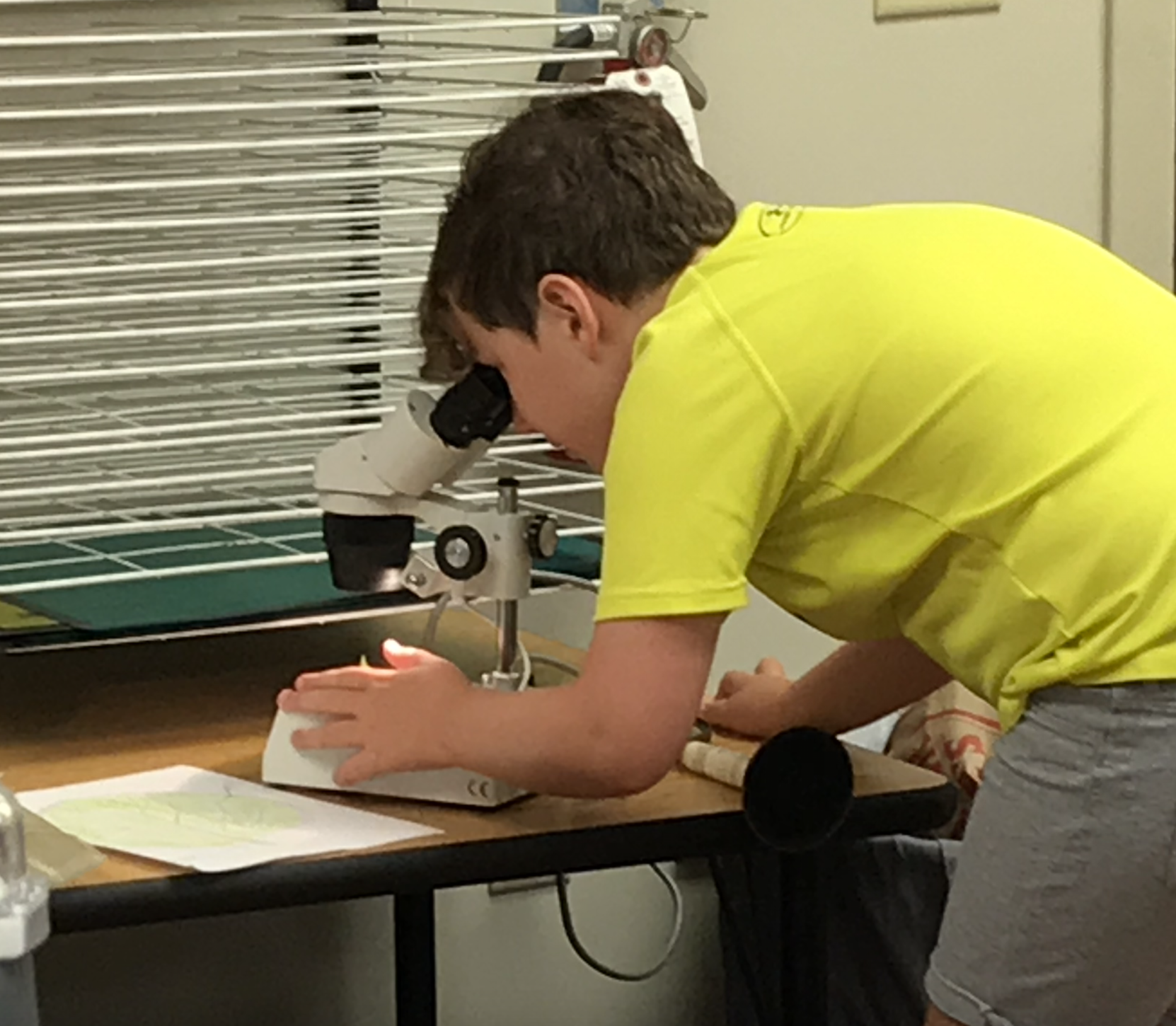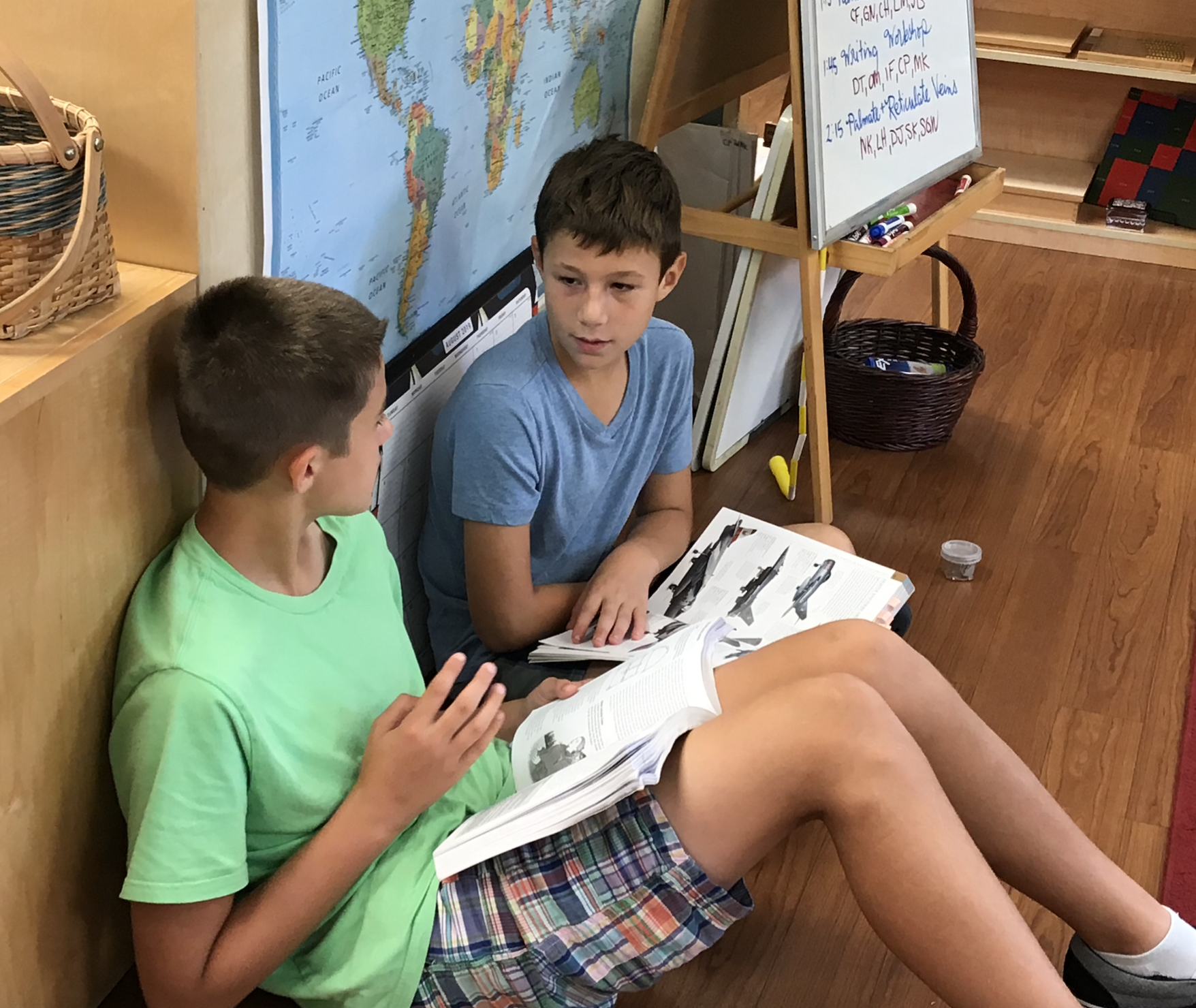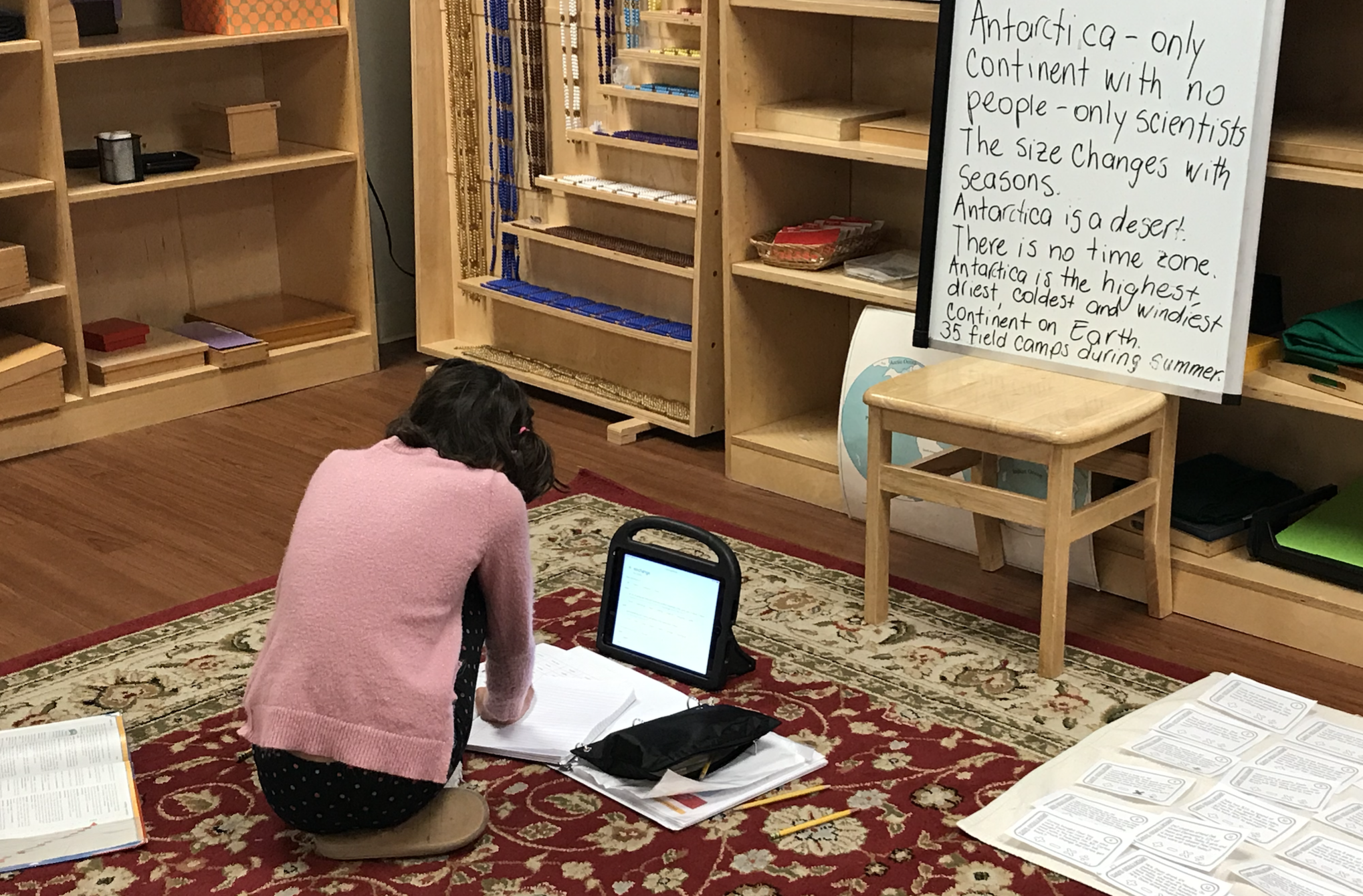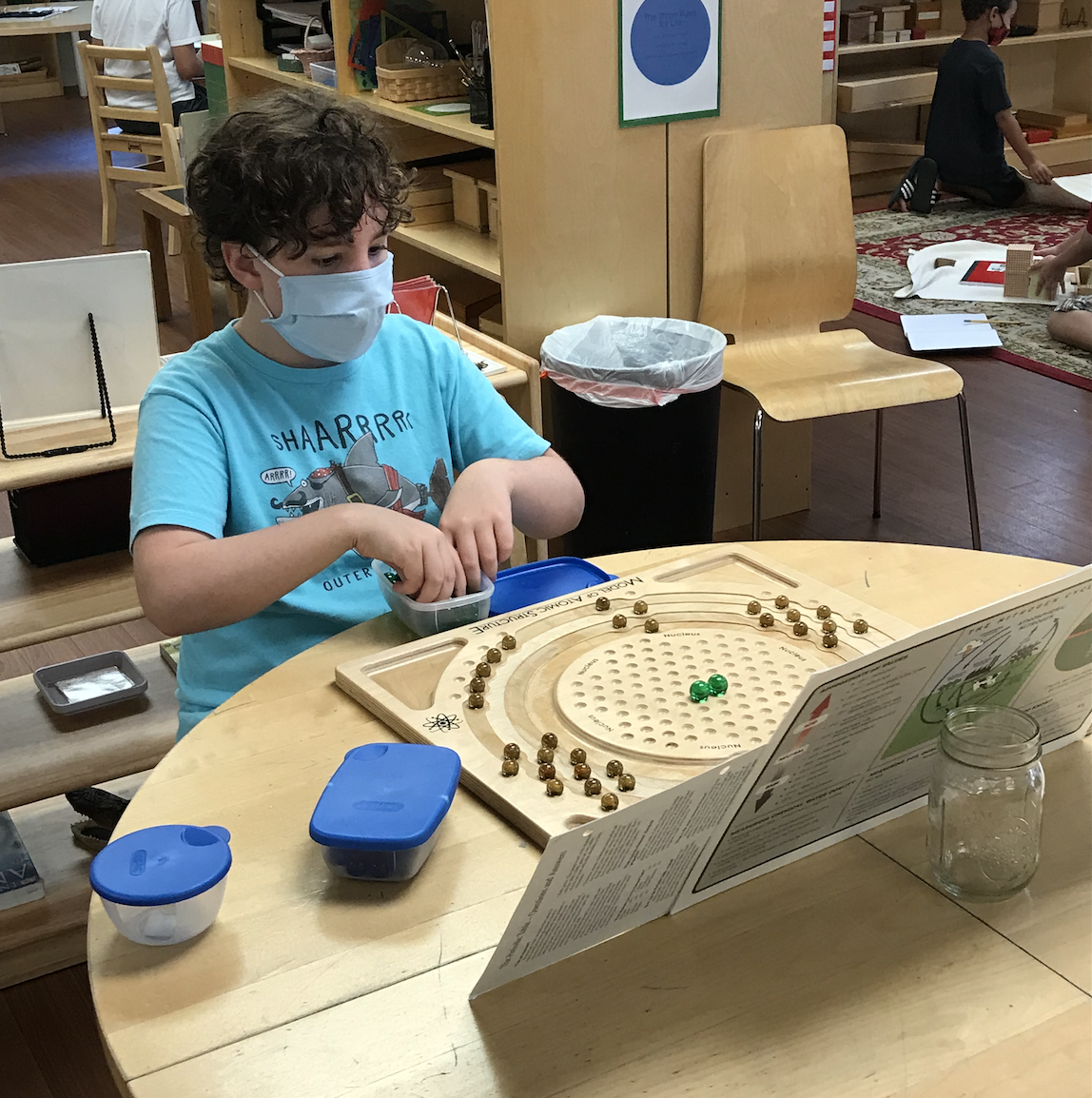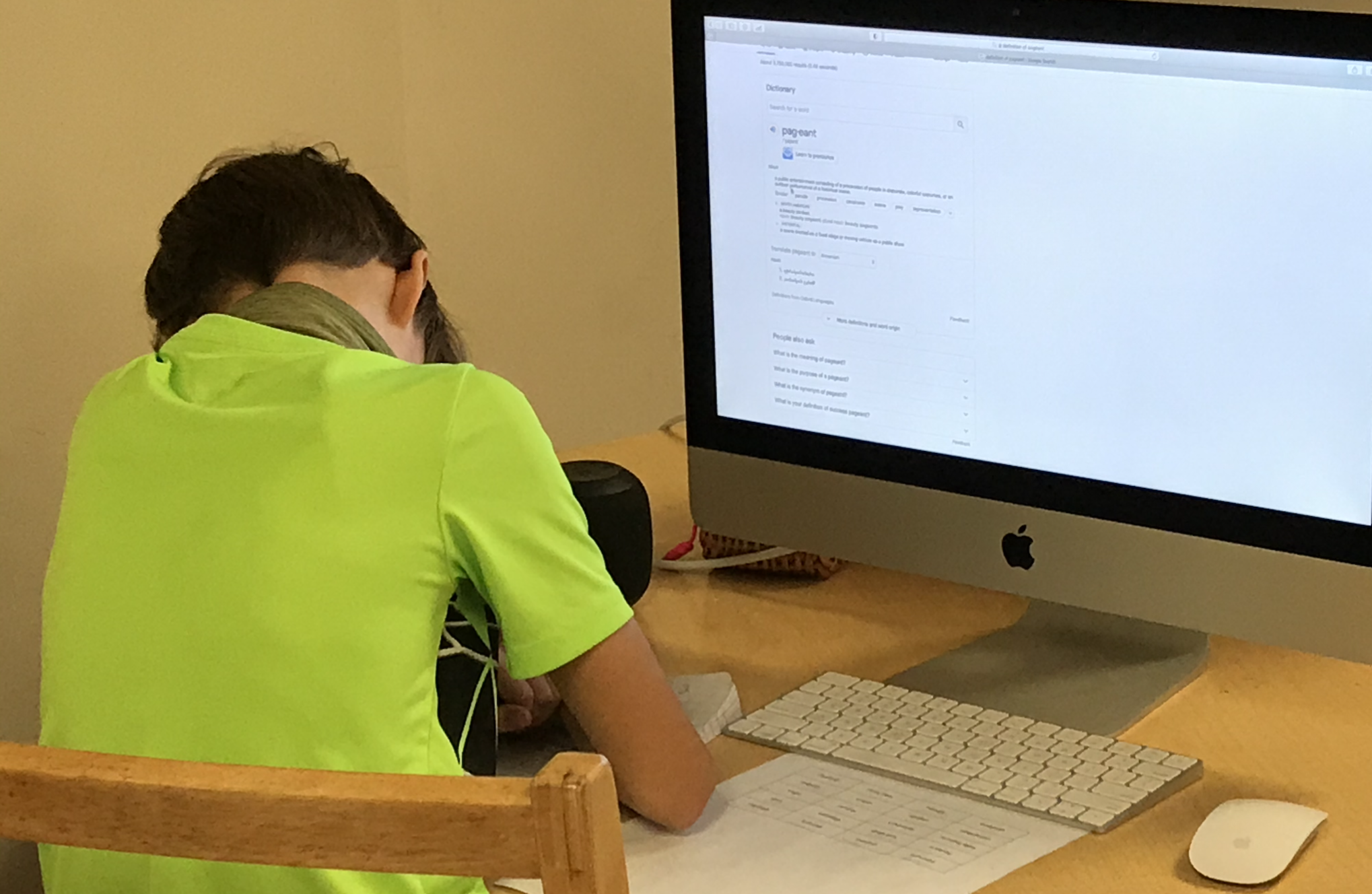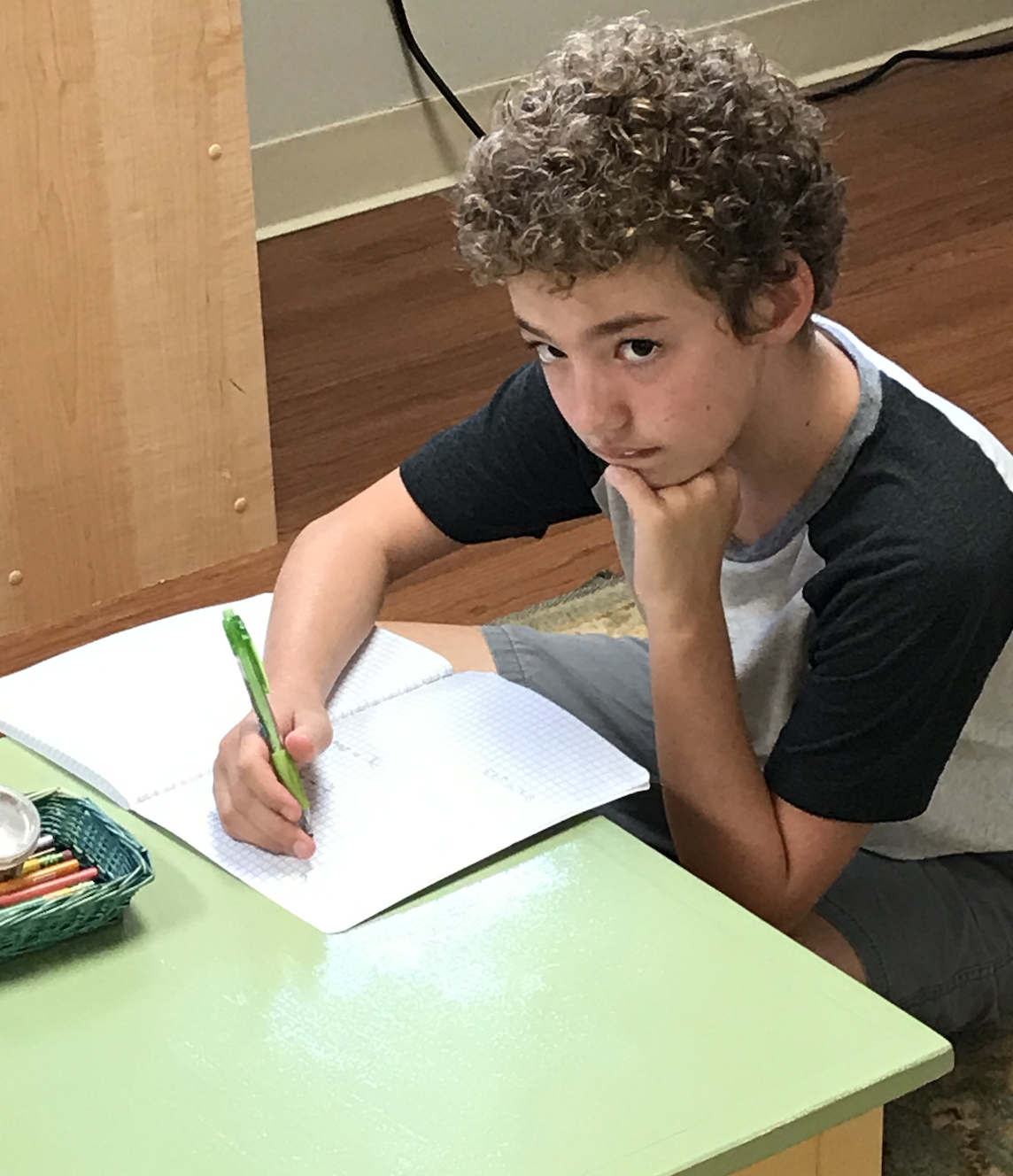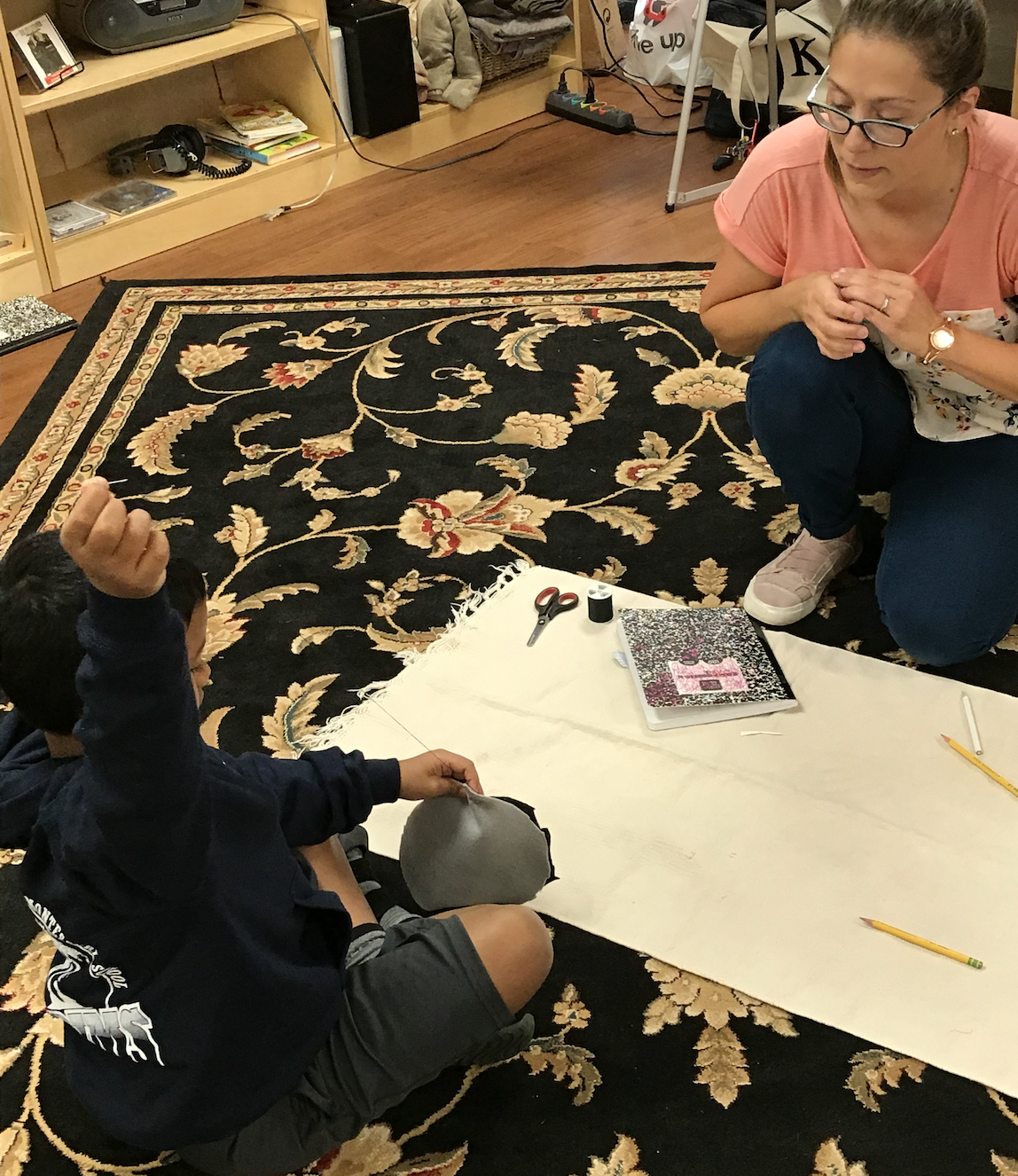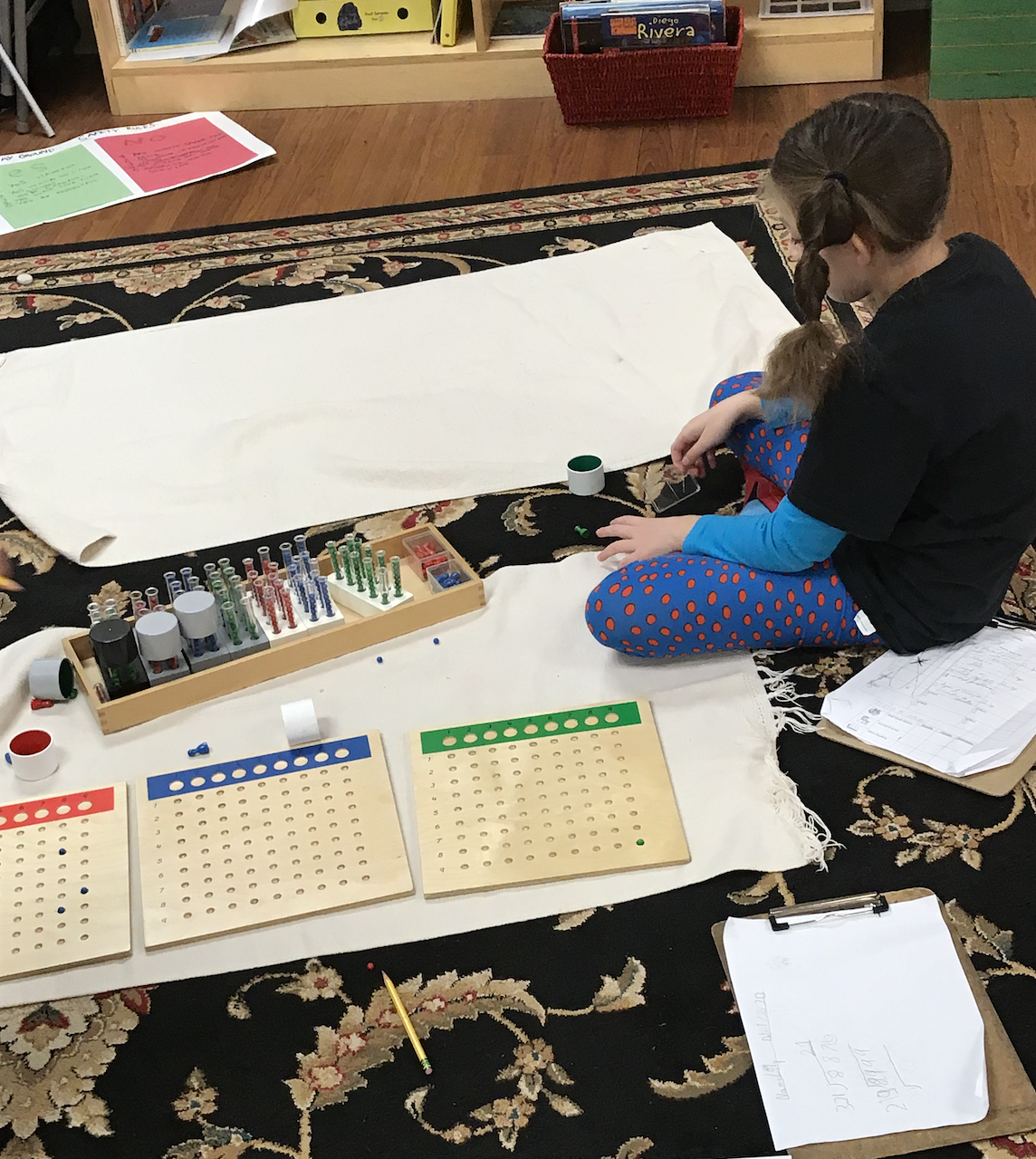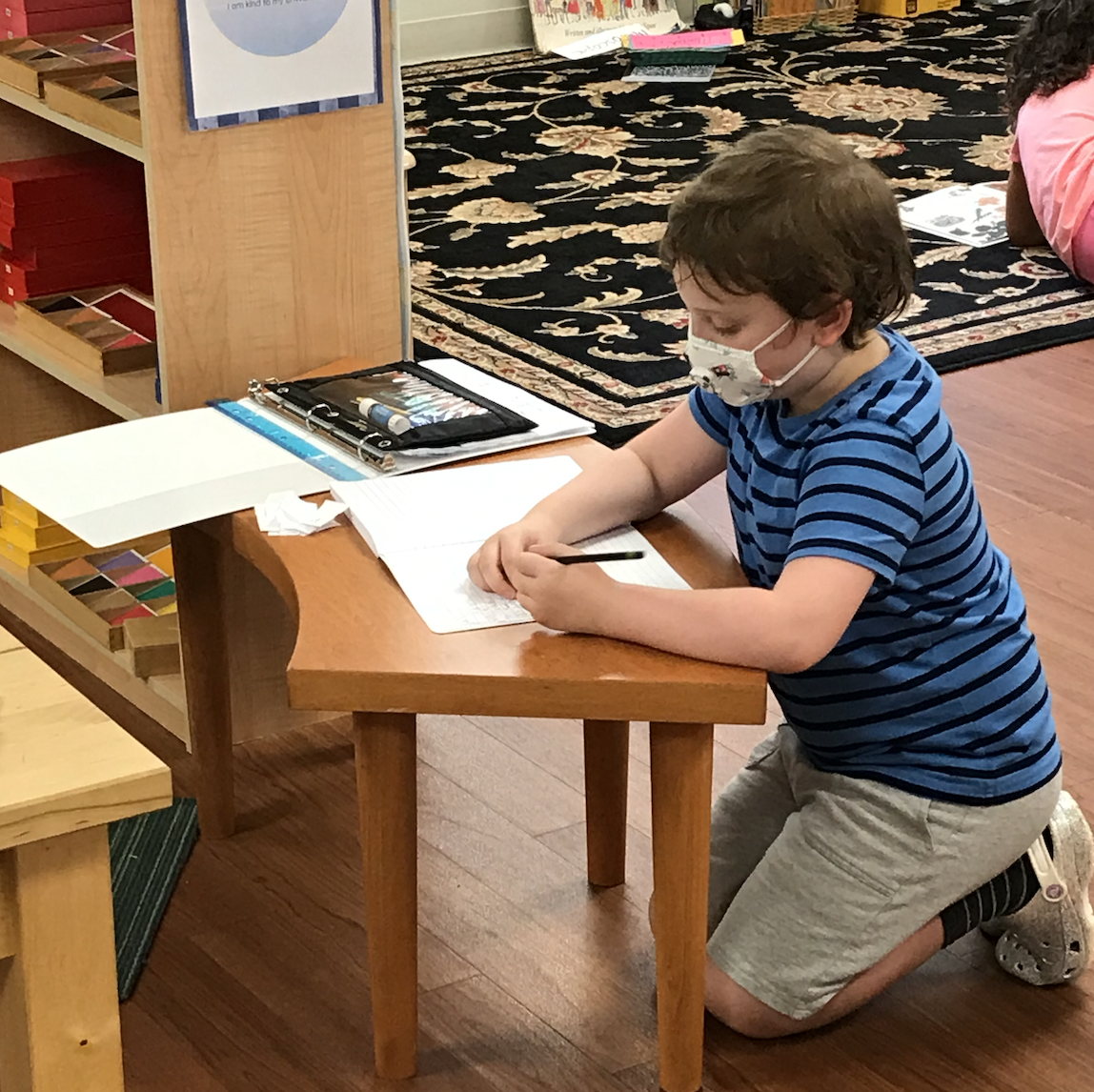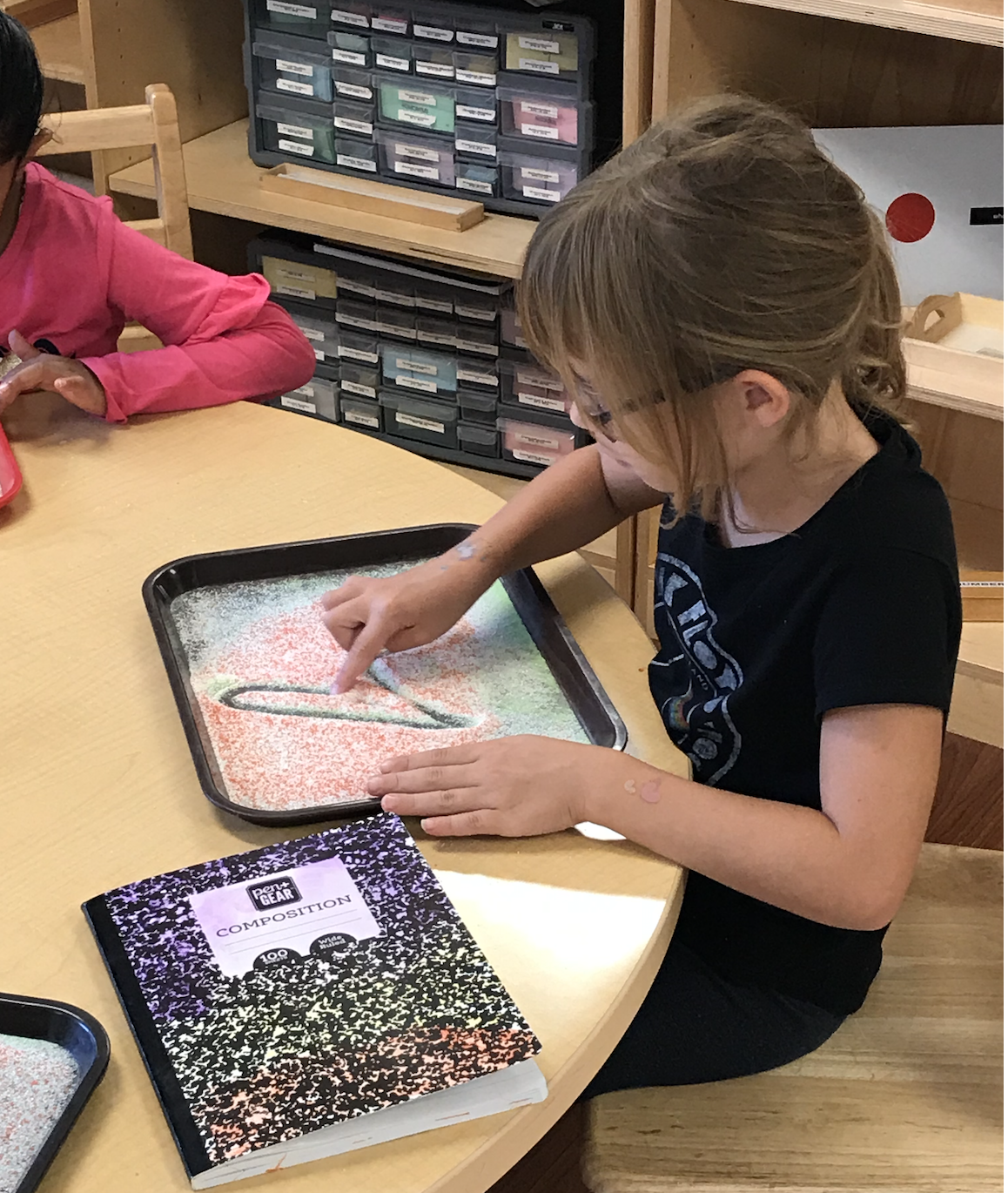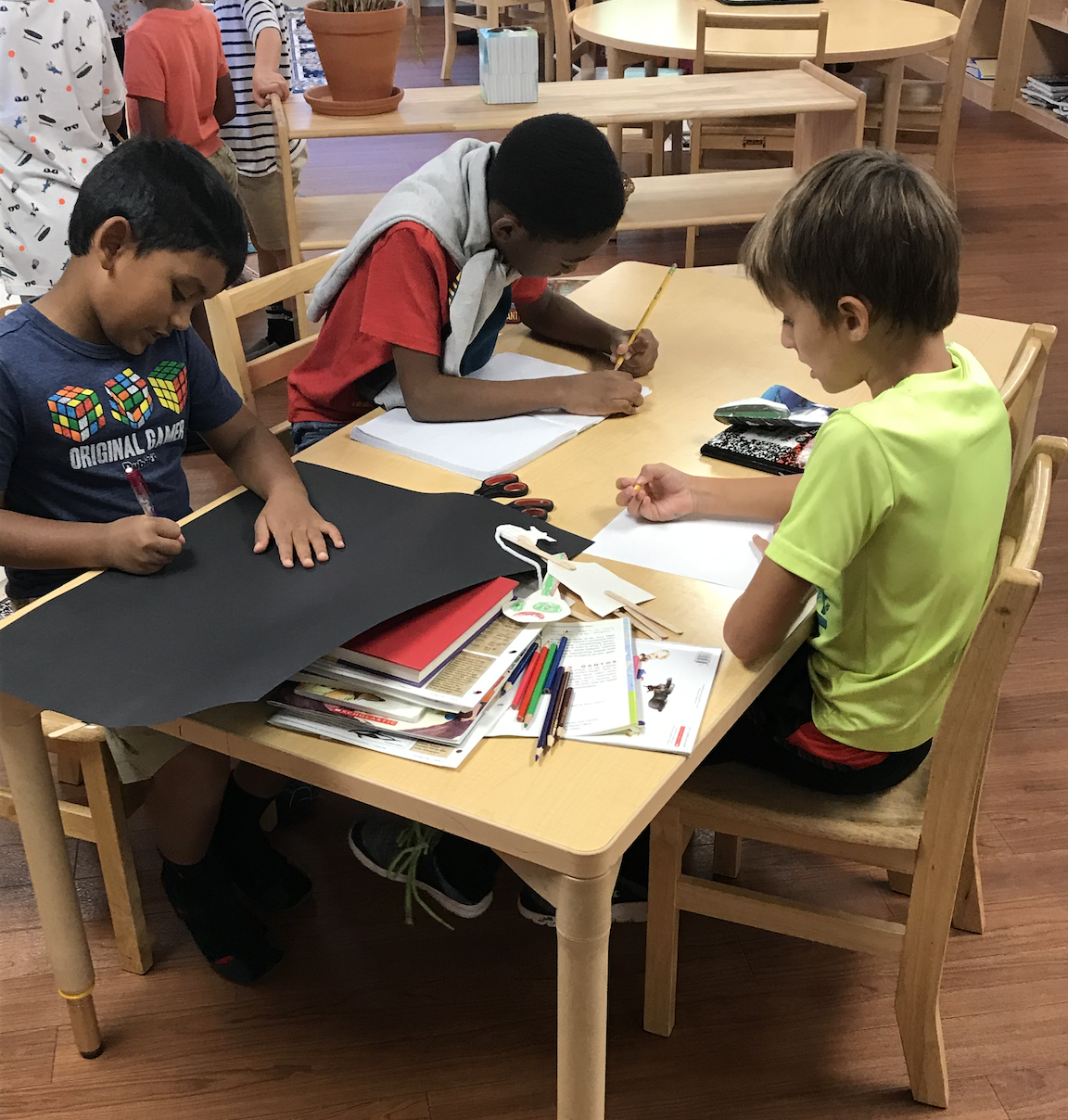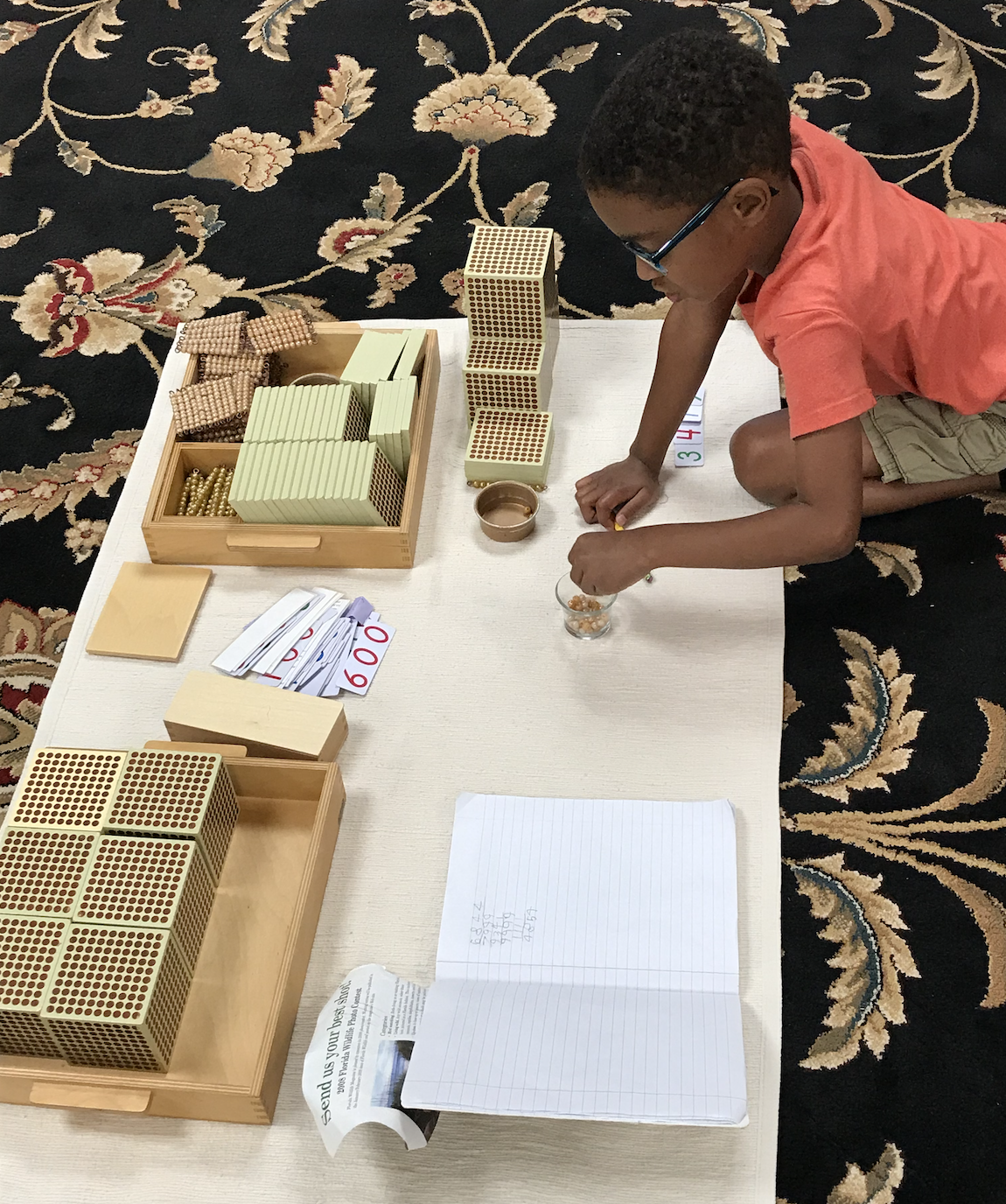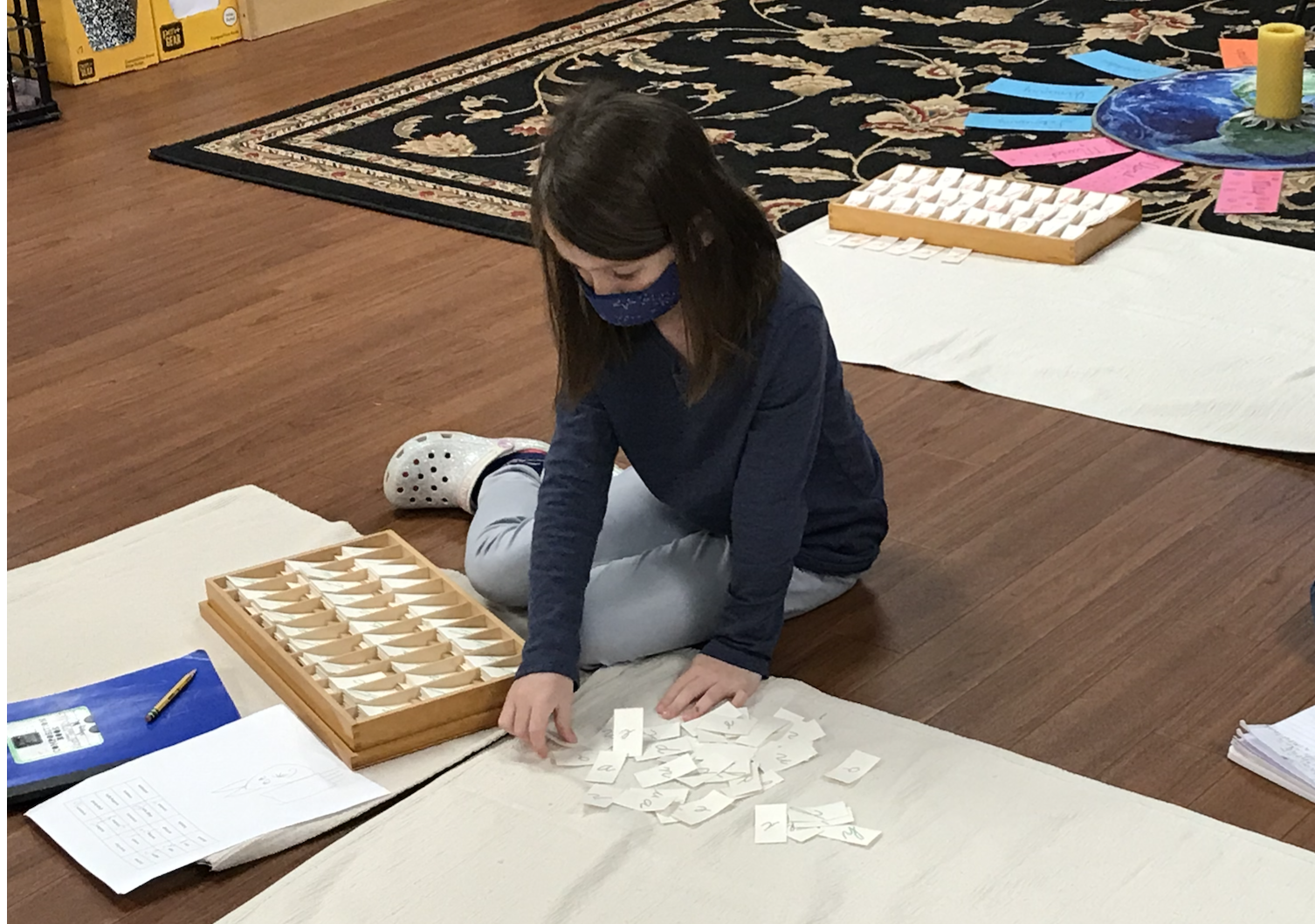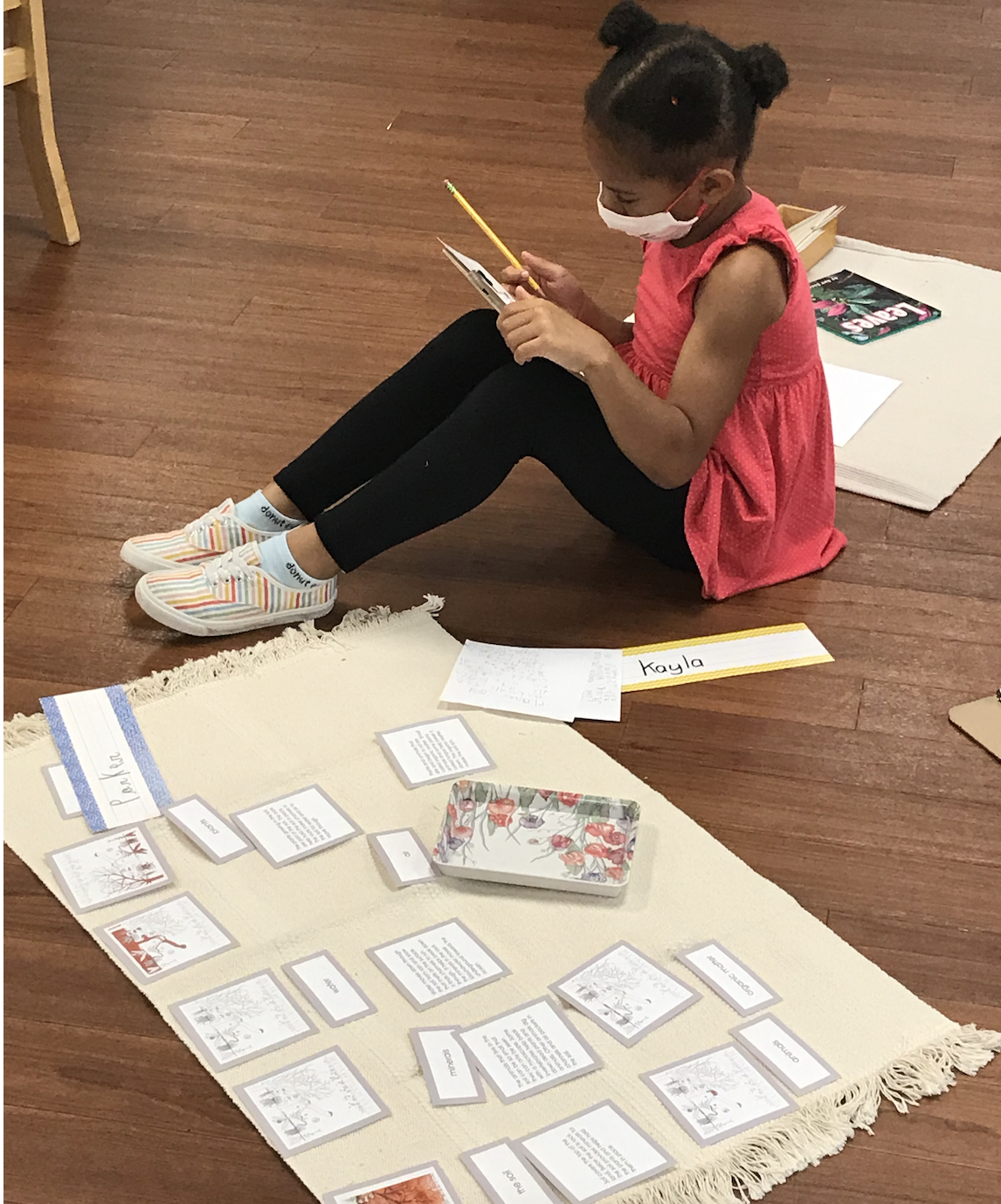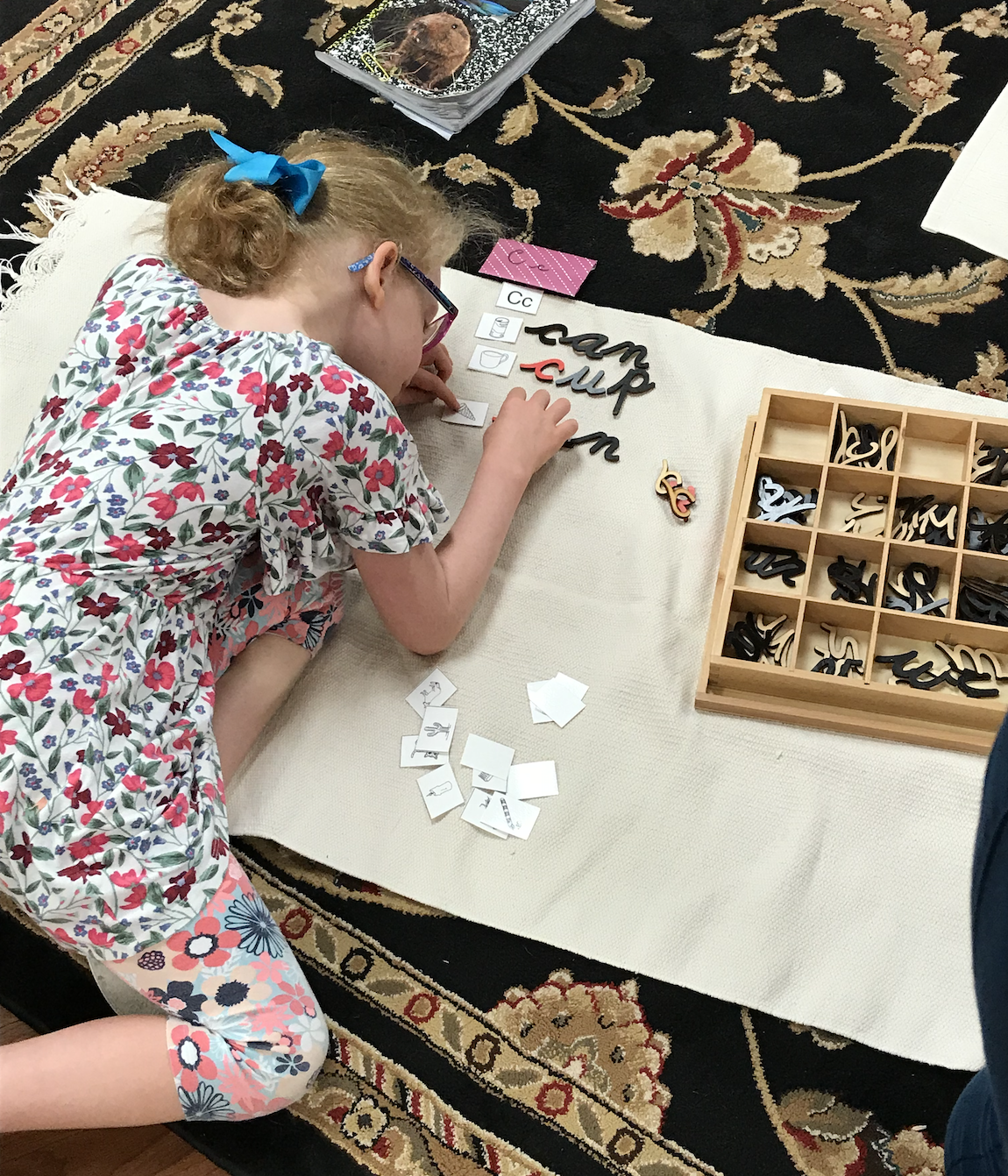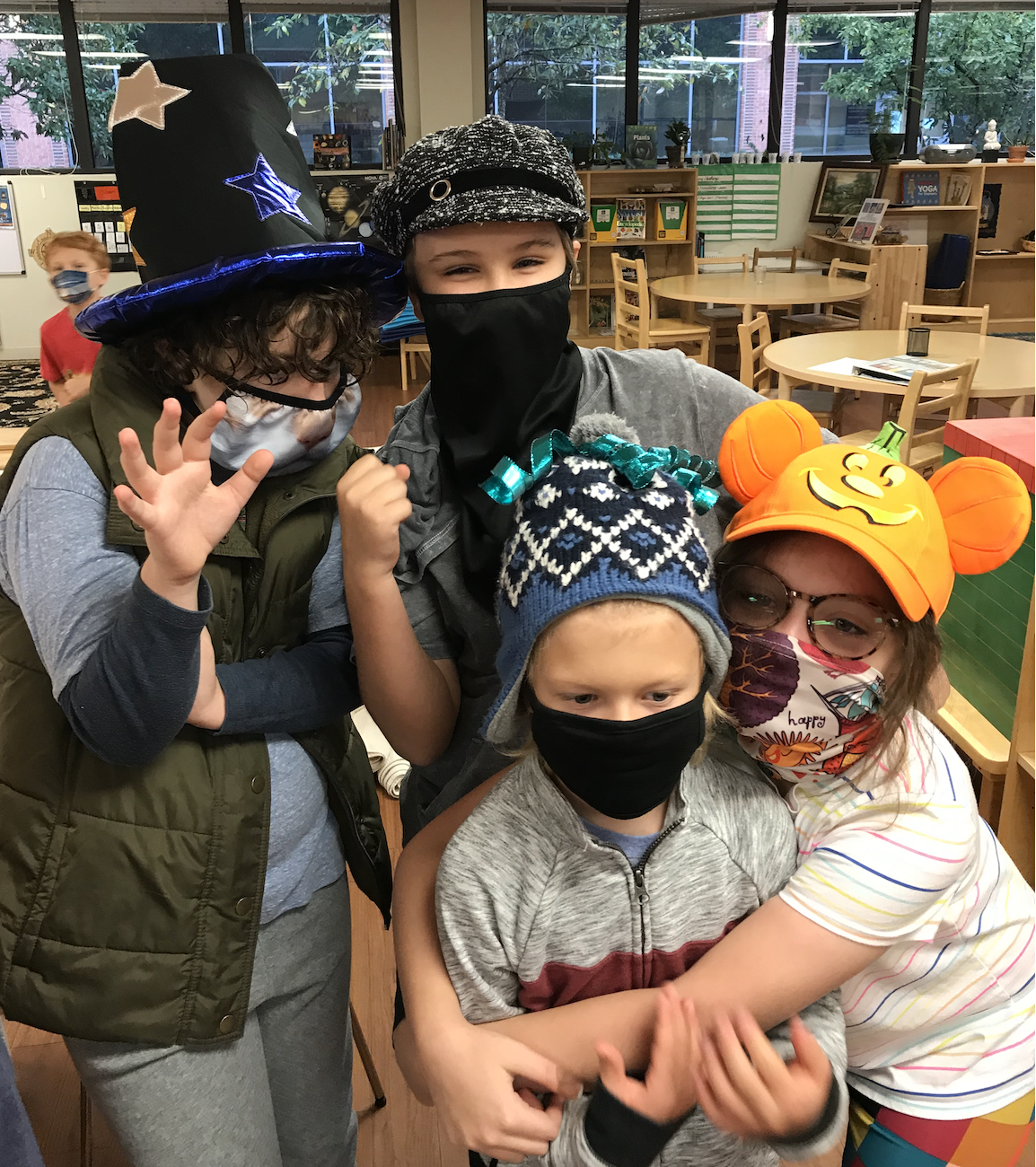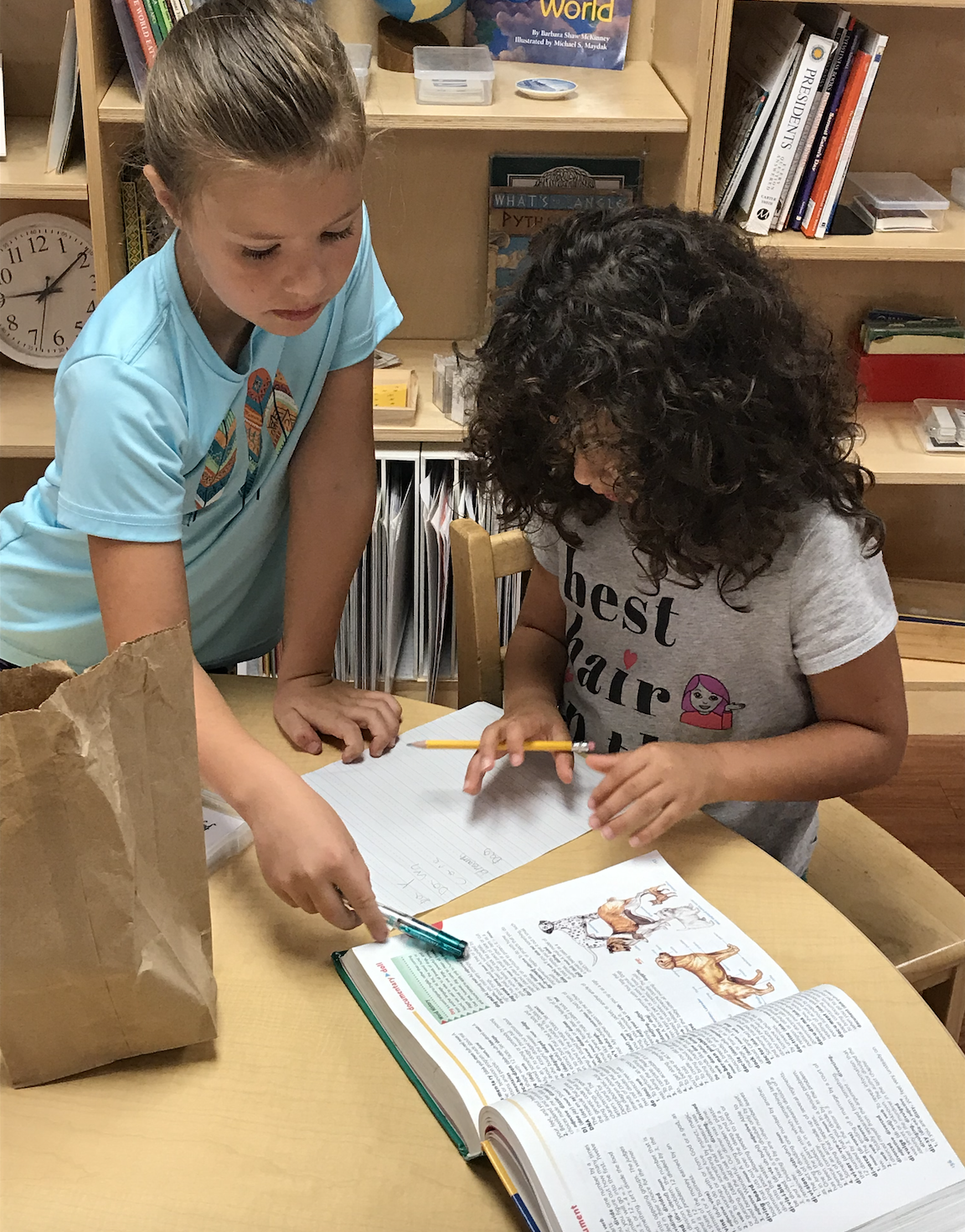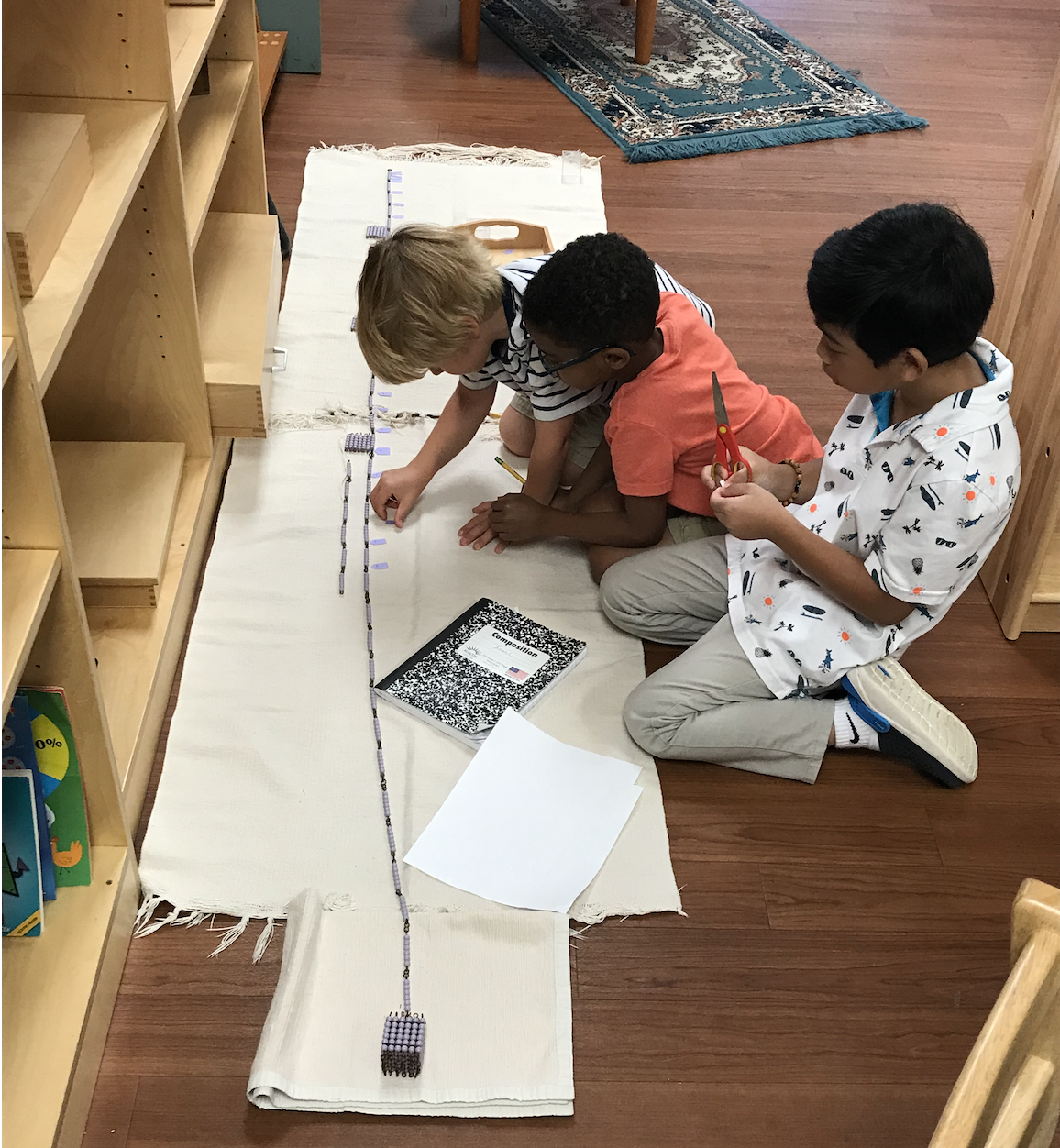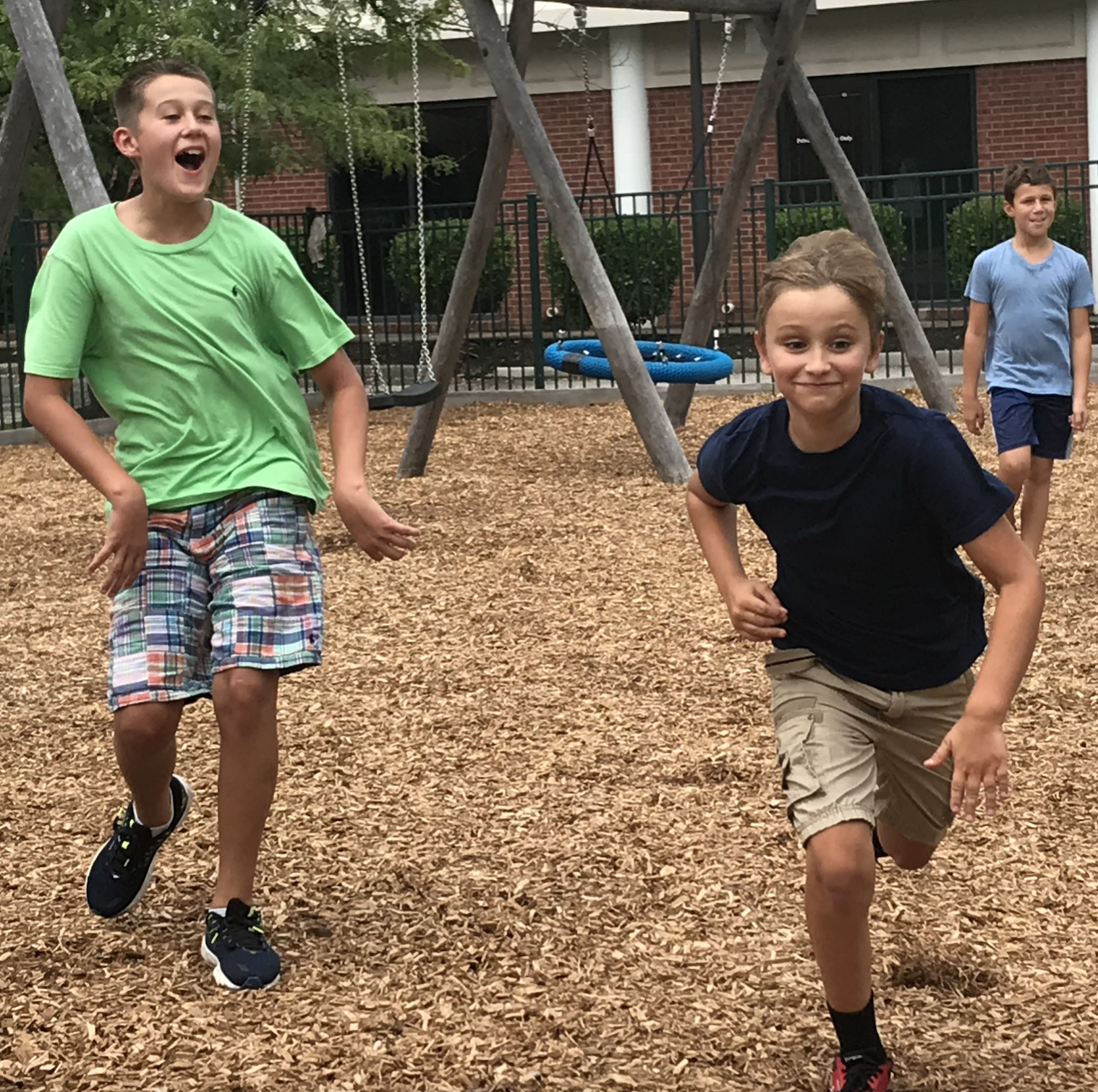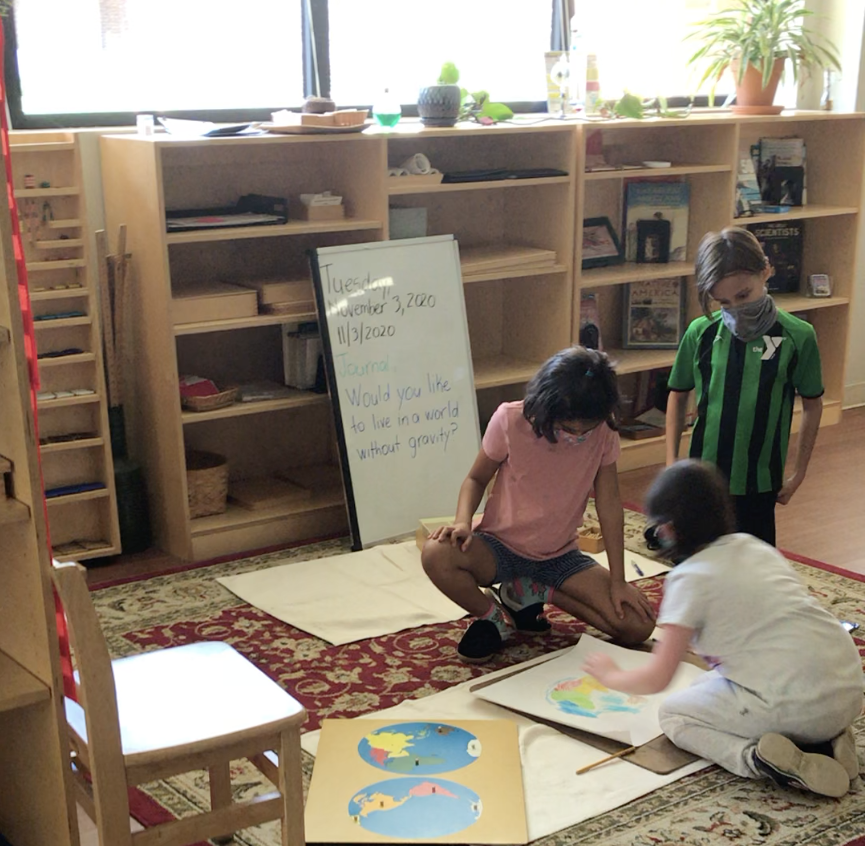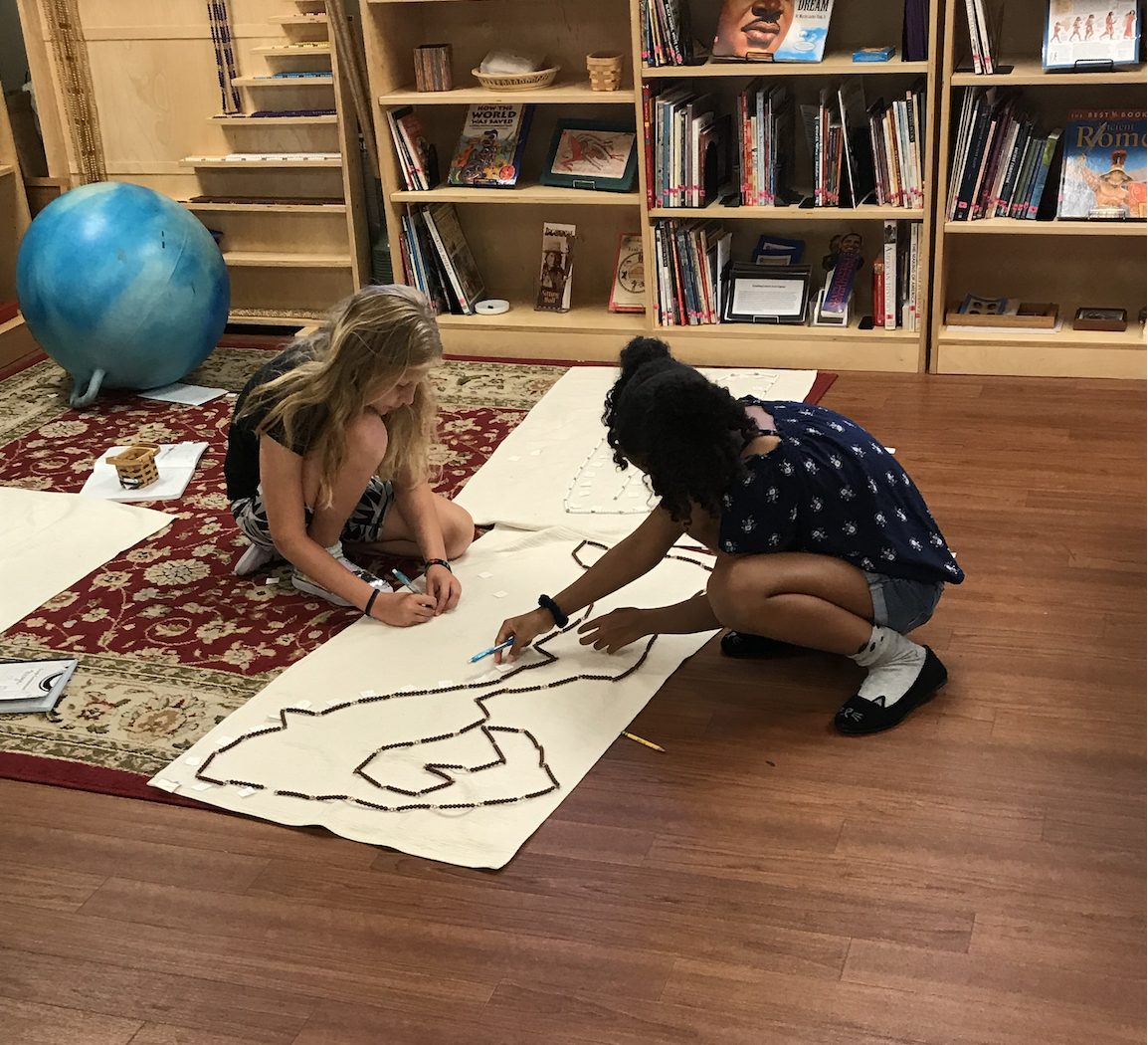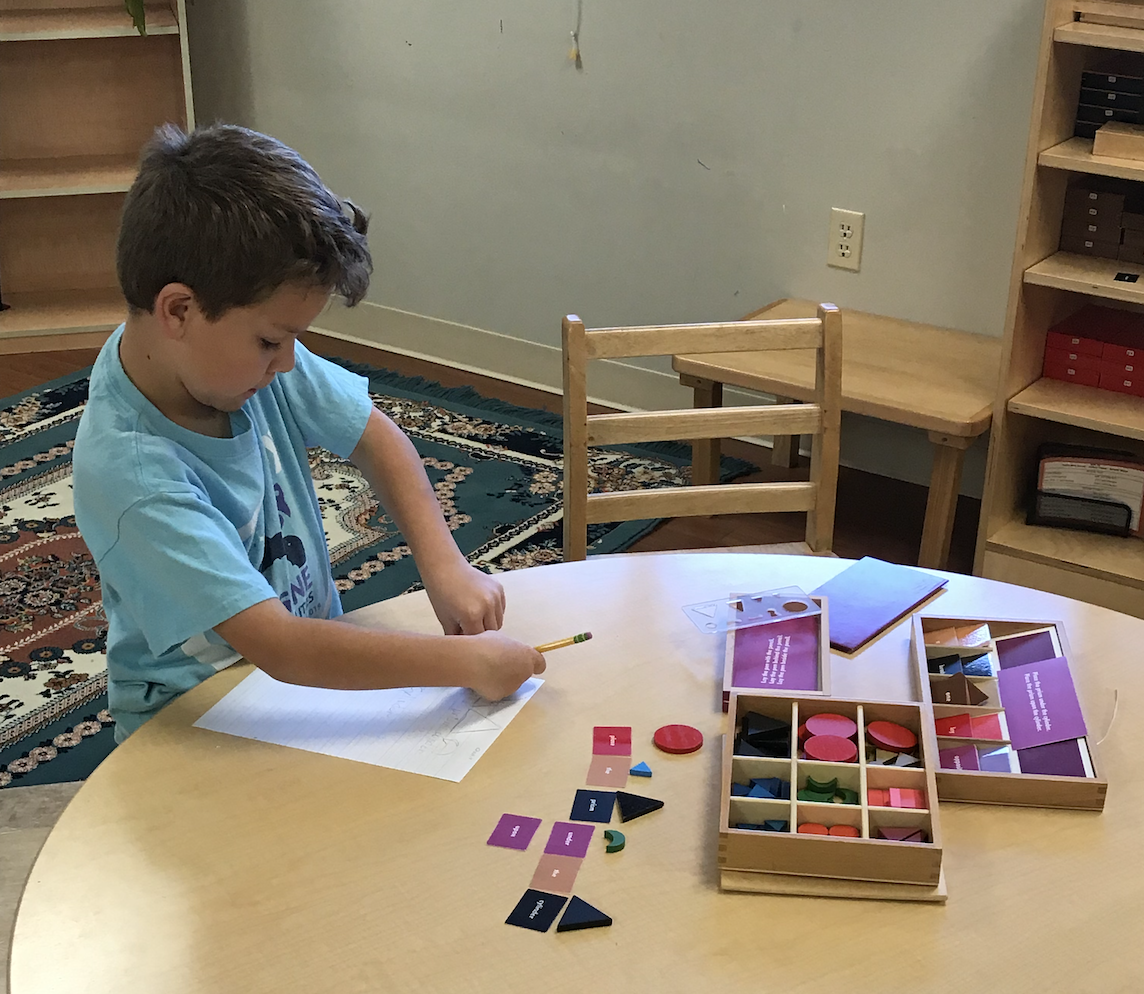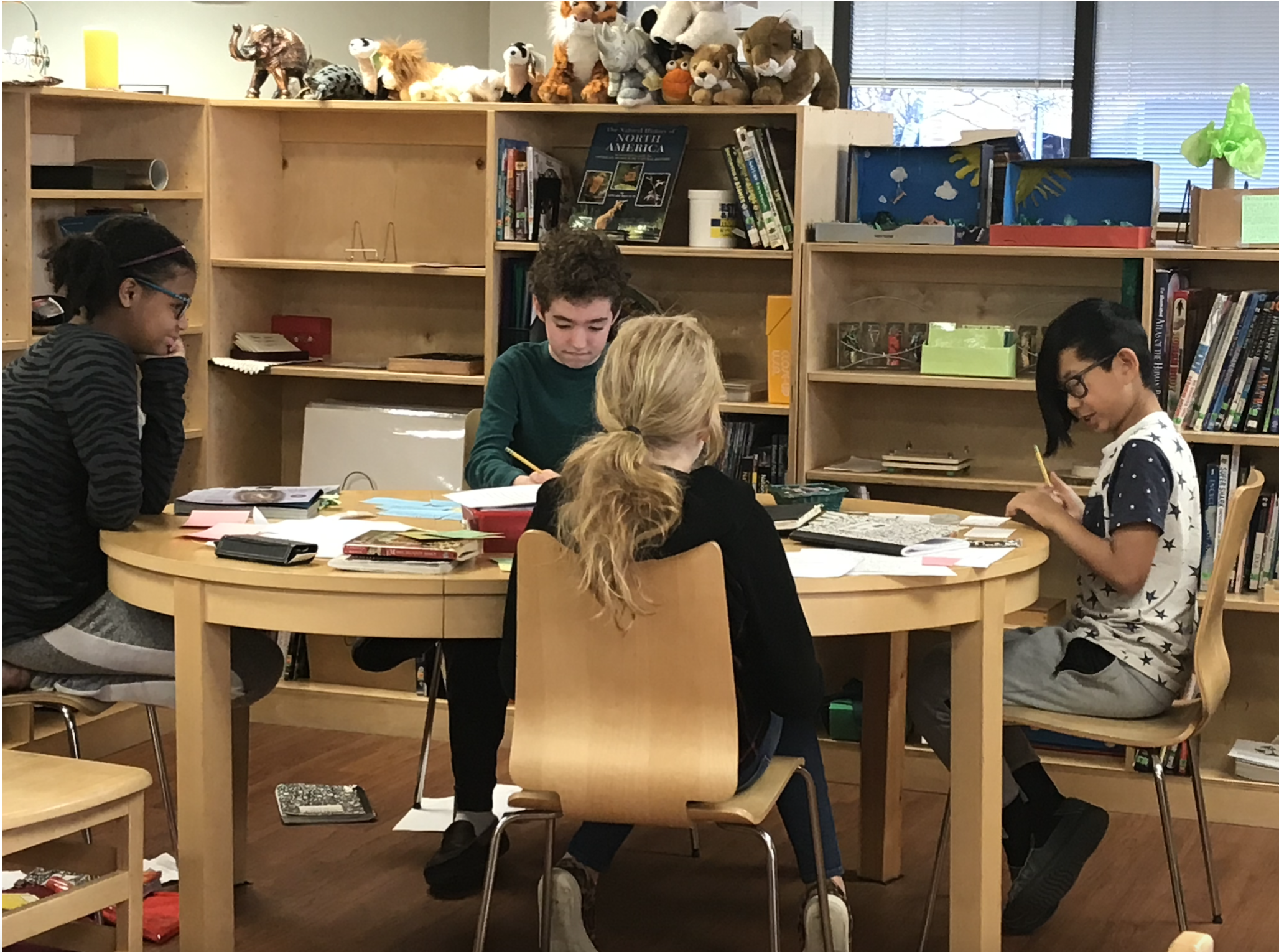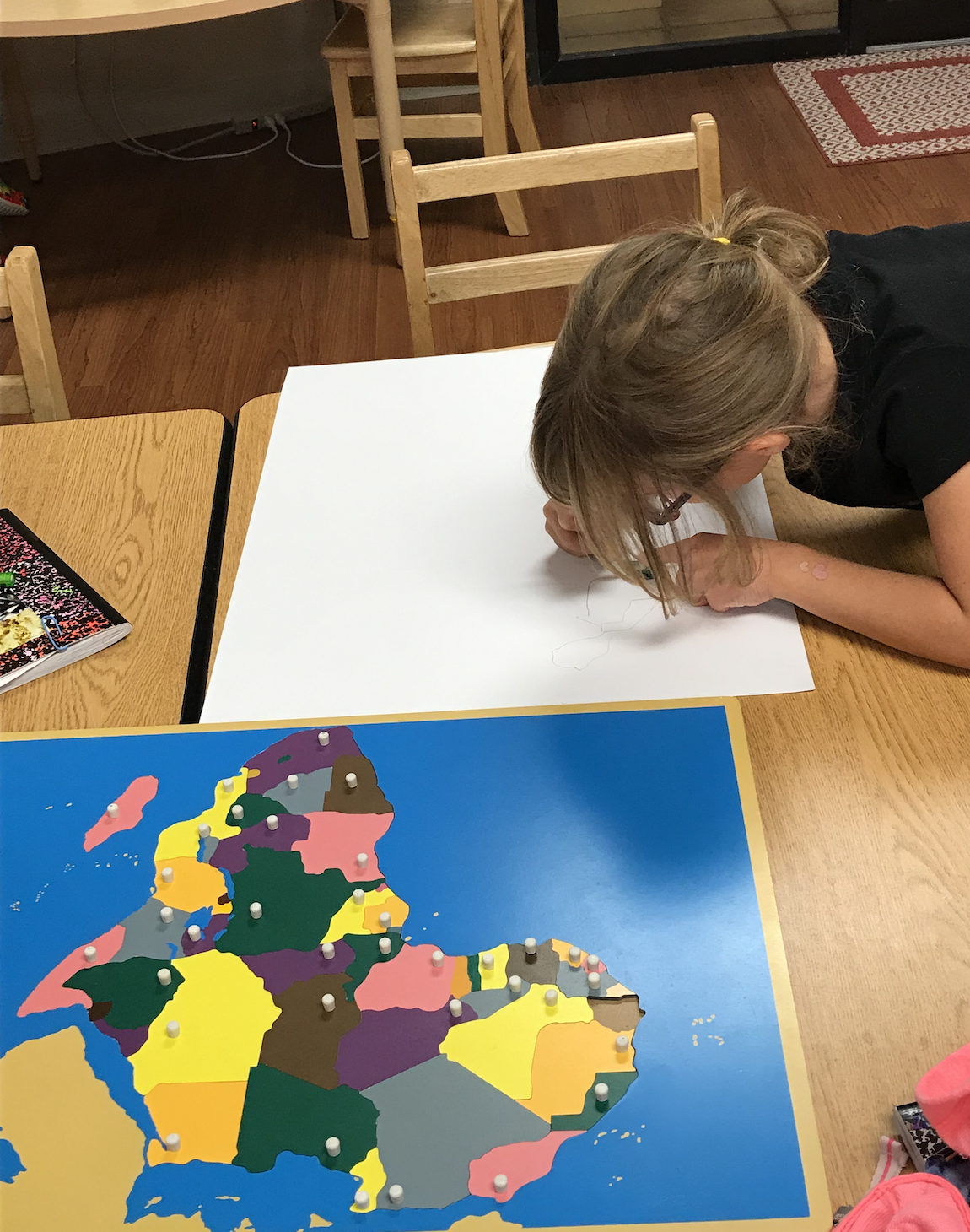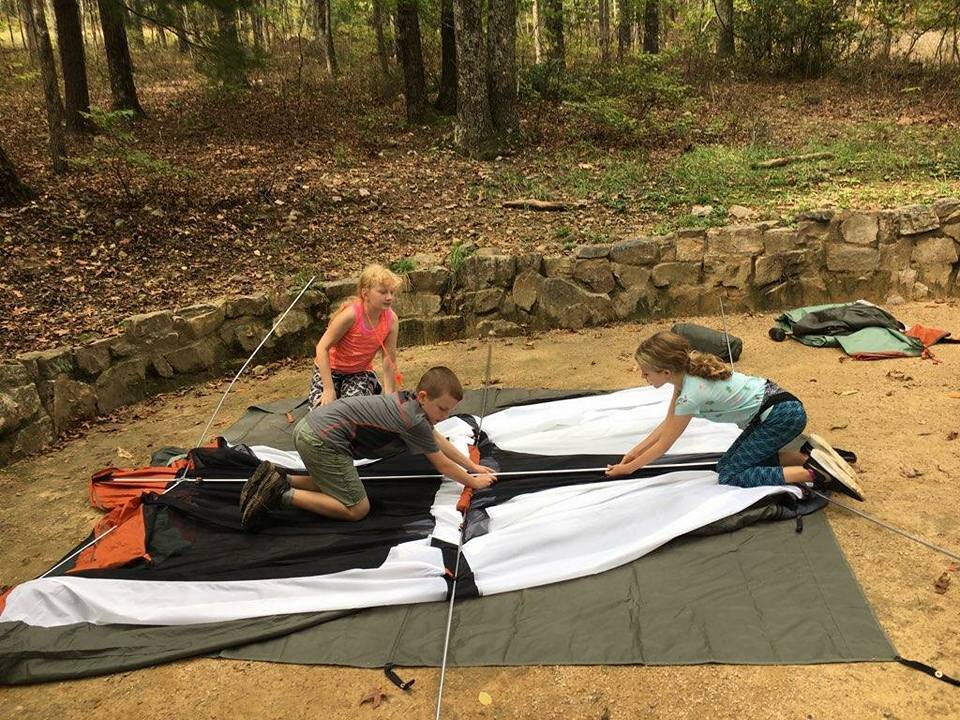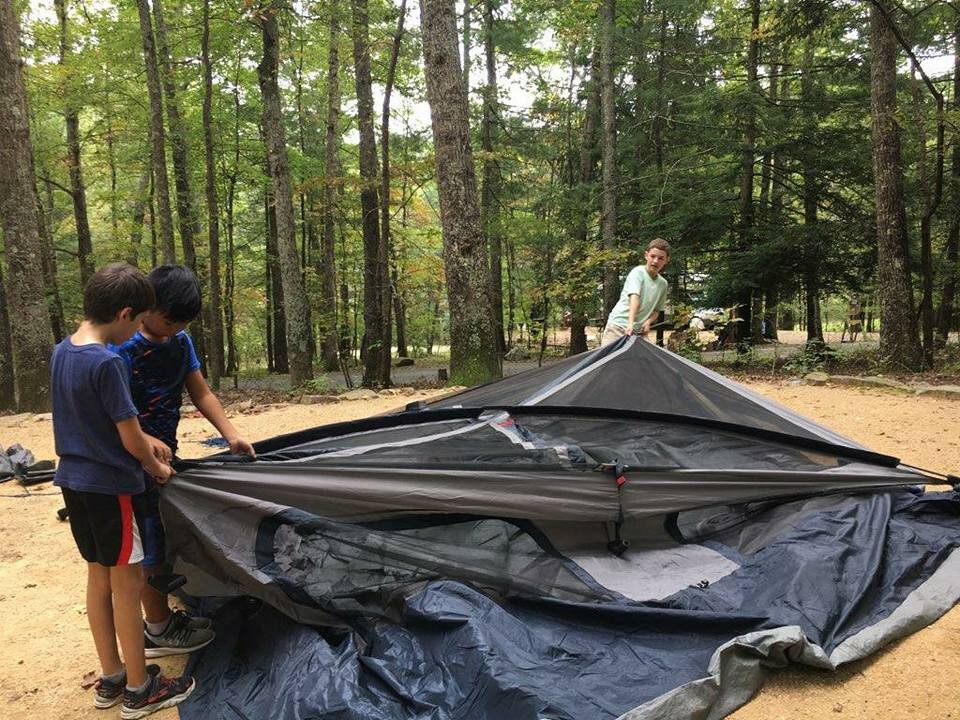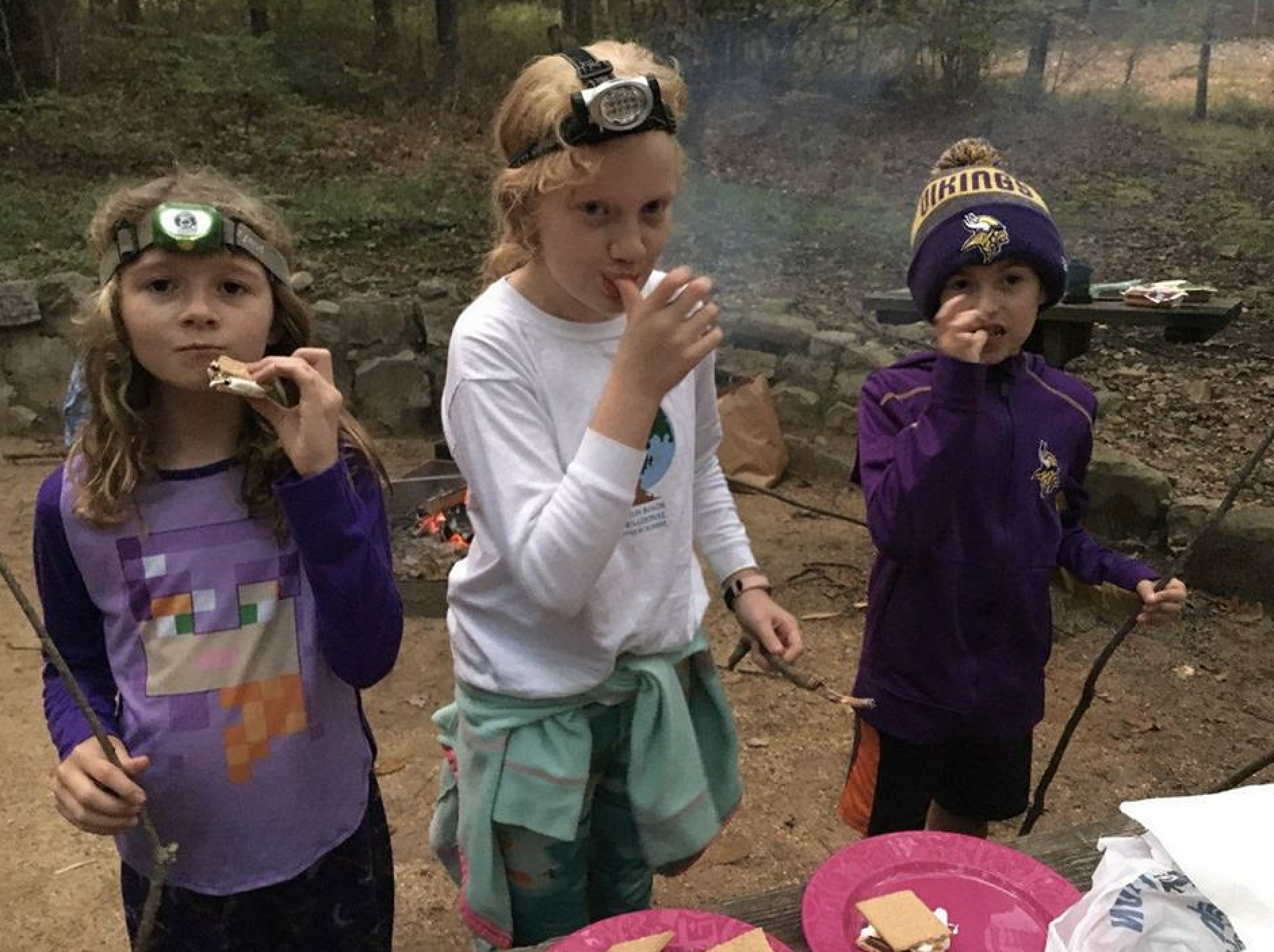Elementary Program: AGES 6 - 12 YEARS
“The elementary child has reached a new level of development. Before he was interested in things: working with his hands, learning their names. Now he is interested mainly in the how and why... the problem of cause and effect.”
— Dr. Maria Montessori
The Montessori Lower and Upper Elementary classrooms are stimulating, interesting places!
The intellectual development of the elementary child can accurately be defined as the passage to abstraction. The inquisitive six year old has entered a questioning period. He is constructing his mind, his intelligence, his will and his imagination. The elementary child wants to know everything about everything! He wants to know the when, where and how of everything. Learning at this stage must be relevant and respond to the child's need to understand his universe. The children are offered a rich and diverse curriculum with emphasis on developing skills, which will support and inspire lifelong learning. The classroom environment encourages both individual and small group exploration.
After completing the Lower Elementary program, the student’s focus becomes where he/she fits in the world, and how he can make an impact.
He begins to define himself in our Upper Elementary program (ages 9-12) as he completes a rigorous, yet inspiring academic curriculum.
The children are offered a rich and diverse curriculum with emphasis on developing skills which will support and inspire lifelong learning. The classroom environment encourages both individual and small group exploration.
Children develop strong skills in reading, writing, mathematics, geometry, geography, history, biology, botany, and social studies through an integrated, core curriculum that begins with thought provoking and inspiring stories. Additional curriculum areas such as art, drama, music and language studies are also a vibrant part of the curriculum.
Montessori Elementary is based on three-year cycles with multi-age groupings. Not only does this enhance social development but also learning opportunities. The youngest children are exposed to and inspired by the older children's activities and knowledge. The older children benefit, in turn, from teaching the younger ones. The older children also provide leadership and mentoring to their younger peers. Friendships that develop in this environment have depth and are generally long lasting. The Montessori Elementary environment provides and nurtures a profound sense of acceptance and belonging. Laughter is no enemy to learning.
Going Out
The children are given opportunities to expand their studies through visits to museums, libraries, nature centers, and other areas of interest. This experience is based on individual or small group interests and meets the needs of the children to explore a subject in greater depth. It may be as simple as going to the art museum to learn more about a particular artist or painting; a visit to the library for additional resources; or a face-to-face meeting with a local meteorologist to learn more about weather patterns. Whatever their nature, the children are active participants in the planning of all these excursions. Service and community projects also play a vital role in cultivating the child's desire to be an active, participating member of their community, while fostering the child's sense of social purpose and moral responsibility.


